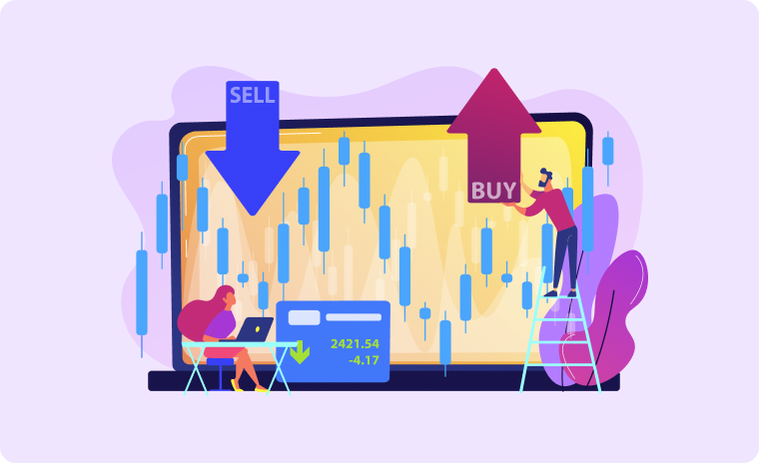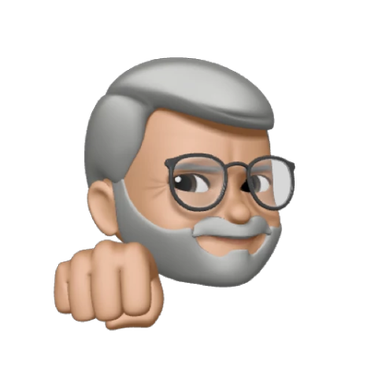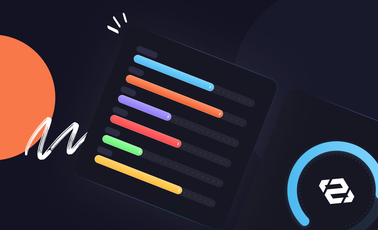No-code Accelerating the Commoditization of Software
Very few people knew what a computer was in the mid-twentieth century. Only few among the baby-boomer generation would have been lucky enough to see a mainframe computer when they were kids if their parents were working at some of the institutions that housed one of those computers. For the next generation, a few desktop PCs in the office became a common sight. Then PCs made their way into our homes, and now into our pockets. What made computer technology accessible to the general public was a process called commoditization.
The computer hardware technology was transformed by commoditization, but it turns out that the software side of things was not immune, either. We’ll have a look at the role no-code is playing in that process, but, first of all…
1 - What is a commodity?
A commodity is a good or resource whose specimens are treated as equivalent regardless of who produces them. Basic agricultural products like wheat and rice, mining products like gold and silver and oil are widely traded commodities with globally set prices and futures markets. There might be differences among the varieties of a commodity, but these varieties, too, are well-defined to the point of having their respective global prices and markets.
In the case of products, a commodity refers to the point where seller’s value proposition perfectly matches the expectation of the buyer. The product definition is clear and different products can substitute for each other. The success of a particular product in the market can accelerate commoditization by setting an industry standard and offering a blueprint for innovation that others can use to build similar products.
2 - EVs and autonomous driving: Full-throttle commoditization
The automotive industry’s recent trajectory illustrates the point. In light of the latest developments, it is safe to say that cars are on course to becoming a commodity soon. For over a century, cars had been something like artistic objects, highly customizable and built on different chassis types suitable for different use cases, offering varying levels of luxury and wildly different interpretations of the internal combustion engine. The introduction of electric vehicles dealt the first blow to the car as we knew it: Gone were the engine sound and characteristic torque curve of the internal combustion engine—driving experience in different EVs are eerily similar to each other regardless of their price points. The fact that electric engine and battery technology are so well-understood made it possible for Tesla to become an automotive giant in a decade and Rimac, a Croatian upstart, to challenge century-old companies in the high-end sports car segment. The second blow to the idea of car-as-an-artistic-object will come from autonomous driving, it seems. With the advent of Level 5 autonomous driving technology, a car will become nothing more than an appliance used for a single job-to-be-done: Transportation. At that point, the differentiation in the automotive industry that has turned people into fans of certain brands and petrolheads will be no more.
3 - Commoditization in the software industry: Modest beginnings, major implications
It might be argued that certain segments of the software industry experienced a similar process of commoditization a long time ago. MS Excel, which immensely expanded the reach of spreadsheet programs, was one of the pioneers of this trend, making the power of software accessible to masses without the need for extensive training (defined by Gartner as “citizen access”). What started as democratization of software in the case of MS Excel became commoditization, thanks to its incredible success whereby it has become the spreadsheet program in the minds of people.
Commoditization naturally opens up the lower end of the market to newcomers, brings about a decrease in prices and erodes profits. In that regard, it can be seen as the curse of success: The product achieves such a high level of success and gains such widespread acceptance that it becomes an industry standard and comes to stand for something bigger than itself while losing much of its revenue stream in the process due to increased competition. The market segment that MS Excel helped establish is now crowded with a plethora of free online spreadsheet applications like Google Sheets, a fact that has rendered a once successful business model no longer viable.
4 - Two trends shaping the present and future
The rise of AI is will definitely change the way society, economy and military operates, triggering outcomes that might be too broad for us to fully comprehend right now. However, one thing is certain: AI-based software will transform the software industry, accelerating the commoditization of software in the meantime. Programming assistants training themselves on the open-source material available on the internet have for some time been assisting coders as they write code, a development which already spurs debates on who owns the AI-generated code. AI will also change the way software is updated and released. Guess which option people will pick when they are faced with either having to pay software companies big bucks to update software or going with AI-supplied updates.
The other trend fueling the commoditization of software will be the widespread adoption of no-code technology. Following in the footsteps of MS Excel, no-code technology will expand the accessibility of software to masses. It is already pushing the boundaries of what a user coming from a non-technical background can do with software on his own, making it possible for him to complete tasks with ever higher levels of complexity. As no-code platforms become more capable, people will be able to create apps for tasks which previously could only be handled by expensive software. The growth of the no-code market particularly in the enterprise segment attests to that. There will definitely be niches remaining in the software realm inaccessible to the general public. However, there will come a time when masses will have mastered software to such an extent that calling it a commodity will be justified.
Peaka is the outcome of a vision to expand the domain of software and make it accessible to people who never knew they needed it. Just like MS Excel eased the work load of office people dealing with the chores of daily work years ago, we believe there is much that no-code can do to make life easier for people who are not familiar with coding. No-code technology will be more than enough for tasks people outside the technology sector could reasonably be expected to face in their lives.




 Please
fill out this field
Please
fill out this field









